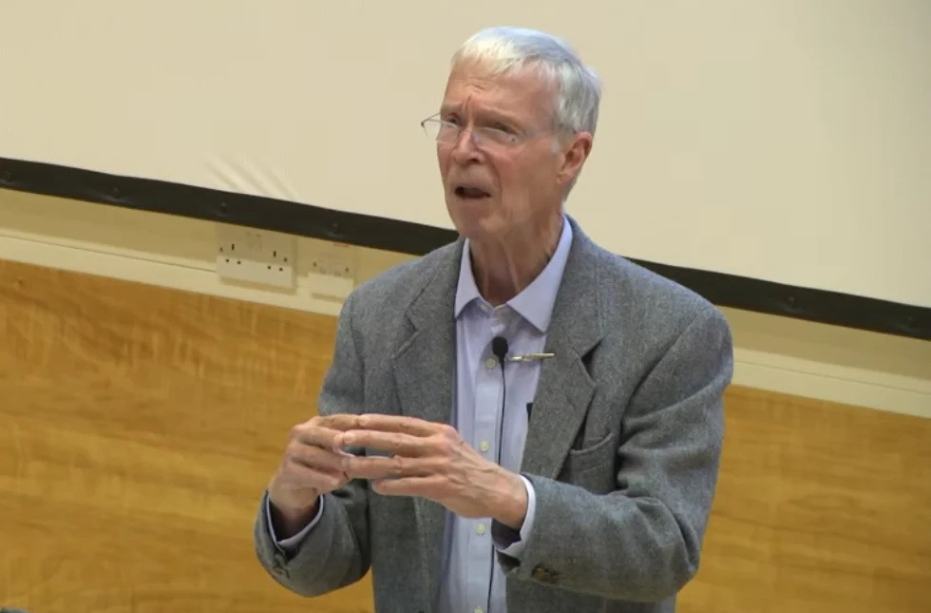A group of survivors of Hiroshima and Nagasaki and three immigrants to America have won the prestigious Nobel Prize in their respective categories.
The Nobel Prize recognizes efforts and breakthroughs in science, peace efforts, and humanism, and gives accolades accordingly. Every year the prize awarding institutions nominate candidates for the Nobel Prize. The nominations are chosen in a way so that many countries and universities are represented.
The Nobel Committees of the four prize-awarding institutions pick the candidates. There are six Nobel Prizes – physics, medicine, peace, chemistry, literature, and economics. The Nobel Prizes for Physics, Chemistry, Physiology or Medicine, and Literature are awarded in Stockholm, Sweden. The Nobel Peace Prize is awarded in Oslo, Norway.
Also Read: NASA Invests $5.2bn In Jupiter Mission To Search Alien Life, Launches Europa Clipper To Icy Moon
Nobel Prize 2024 Winners
Here is the who’s who of Nobel Prize 2024:
Physics 2024: John Hopfield and Geoffrey Hinton
They used tools from physics to construct methods to help lay the foundation of machine learning. While John Hopfield created a structure that can store and reconstruct information, Geoffrey Hinton came up with the Boltzmann machine a method that can independently discover properties in data.

It is trained by feeding it examples that can arise when the machine is run. This method can be used to create new examples of the type of pattern on which it was trained.
Chemistry 2024: David Baker, Demis Hassabis, John Jumper
David Baker successfully built entirely new kinds of proteins, and Demis Hassabis and John Jumper created an AI model (called AlphaFold2) to solve a 50-year-old problem of predicting proteins’ complex structures. Their discoveries and creations can help researchers better understand antibiotic resistance and create images of enzymes that can decompose plastic.
Physiology/Medicine 2024: Victor Ambros and Gary Ruvkun
The duo discovered microRNA which is a new class of tiny RNA molecules. This revealed a new principle of gene regulation that is essential for multicellular organisms, including humans. microRNA is used in cells to control gene activity.
Researchers say gene regulation by microRNA, discovered by Ambros and Ruvkun, has been working for hundreds of millions of years. It has enabled the evolution of increasingly complex organisms.
Also Read: Canada And India Continue Grudge Over Hardeep Singh Nijjar’s Killing, Expels Six Diplomats
Literature 2024: Han Kang
Han Kang, 53, has emerged as the first South Korean literature laureate. Nobel Prize commended Han for her intense poetic prose that confronts historical traumas and exposes the fragility of human life. Han says all writers have been collected.
She highlighted that they are searching for meanings in life, and sometimes they are lost and sometimes they are determined. Han shared that all of their efforts, and strengths have been an inspiration.
Peace Prize 2024: Nihon Hidankyo
This is a grassroots movement of Japan’s atomic bomb survivors from Hiroshima and Nagasaki. The survivors helped to generate and consolidate widespread opposition to nuclear weapons around the world by highlighting personal stories, creating educational campaigns, and warnings against the spread and use of nuclear weapons.
The Norwegian Nobel Committee highlighted that the extraordinary efforts of Nihon Hidankyo and other representatives of the Hibakusha contributed to the establishment of the nuclear taboo.
Economic Sciences 2024: Daron Acemoglu, Simon Johnson, and James Robinson
Daron Acemoglu and Simon Johnson – both from MIT, Cambridge, USA, and James Robinson from the University of Chicago have shown the importance of societal institutions for a country’s prosperity.
They highlighted that inclusive institutions were introduced in poor countries, and over time the countries became prosperous, an important reason for why former colonies, once rich, are now poor, and vice versa.
The laureates said the introduction of inclusive institutions would create long-term benefits for everyone, but extractive institutions provide short-term gains for the people in power.